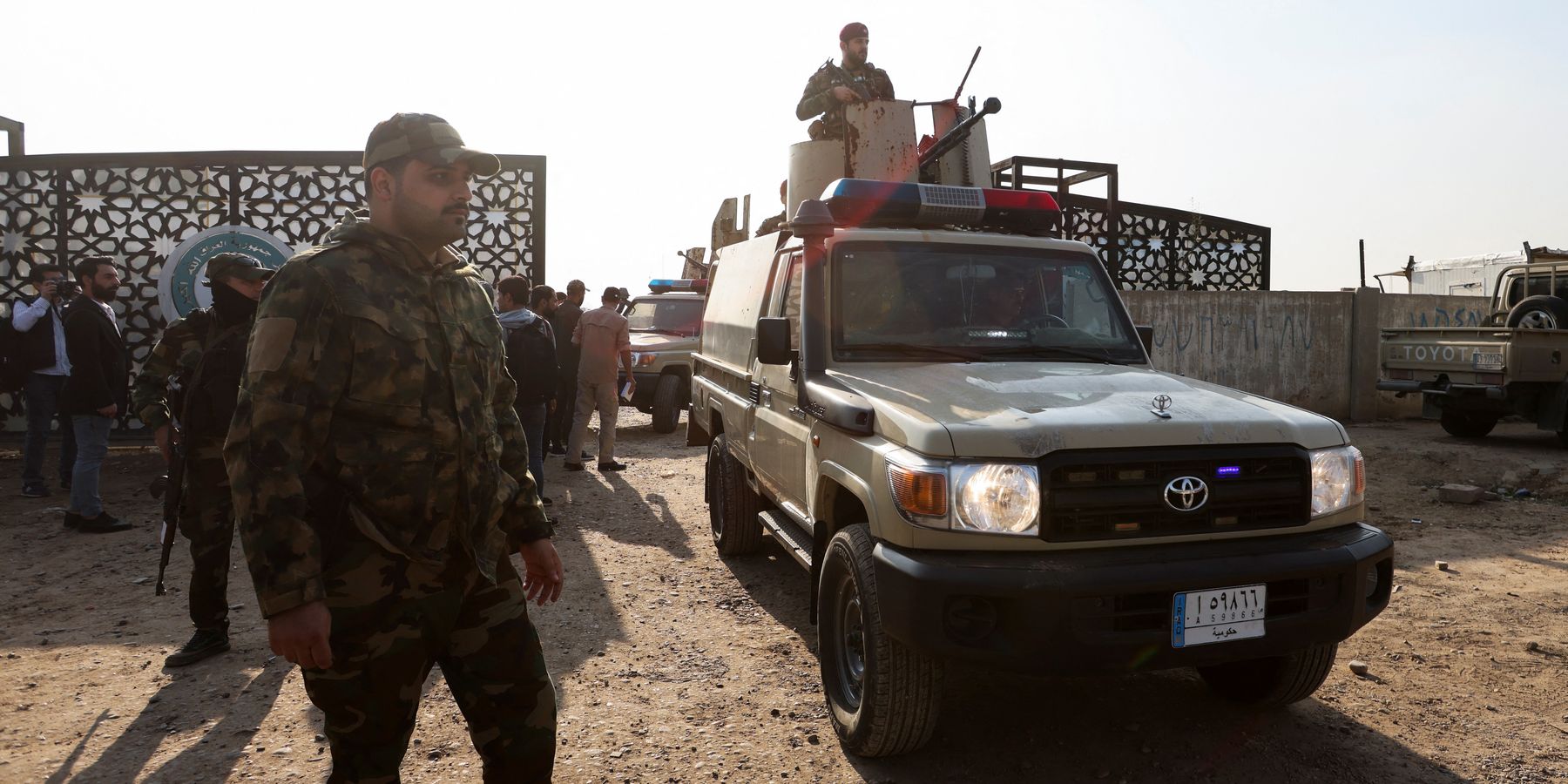A U.S. airstrike Thursday in the Iraqi capital city of Baghdad killed Abu Taqwa, a commander of Harakat Hizballah al-Nujaba, along with an unranked individual, according to reports .
Harakat Hezbollah al-Nujaba and Kataib Hezbollah are two of the Iran-aligned militias that have most frequently targeted U.S. forces in Iraq, both before and notably after the start of the Gaza conflict on Oct. 7.
Abu Taqwa also served as the Deputy Commander of Baghdad Belt Operations in the Popular Mobilization Forces (PMF). While formally part of a chain of command led by the prime minister, certain factions within the PMF, particularly Shi’a paramilitary units, operate outside of this structure.
The airstrike targeted a vehicle carrying Taqwa at a logistics center near Iraq’s Interior Ministry in Baghdad. Significantly, this strike occurred shortly after a meeting between Akram Al-Kaabi, Secretary-General of the al-Nujaba militia, and the commander of the Iranian Quds Force, Ismail Qaani. Considering the location, timing, and Taqwa’s role within the PMF, this event represents a notable escalation and a clear message to both Iran-aligned militias and the Iraqi government.
The targeted killing occurred against a backdrop of tense relations between Washington and Baghdad. Widely interpreted as a preliminary warning to the Iraqi state, U.S. Defense Secretary Lloyd Austin specifically addressed attacks by Kataib Hezbollah and Harakat al-Nujaba against U.S. forces when he spoke with Iraqi Prime Minister Sudani on Dec. 8. Furthermore, during a press conference with the Spanish Prime Minister at the end of December, Sudani mentioned that his government was reassessing the presence of the international coalition in Iraq.
In the near term, it is unlikely that U.S. troops will receive orders to leave Iraq or that Iran and its affiliated militias will launch a significant retaliation within Iraq. However, with each tit for tat escalation, sometimes without formal claims of responsibility, the risk of a broader regional conflict looms larger. If, especially during an election year, a U.S. soldier were to be killed by an Iran-aligned militia, the pressure on the Biden administration to escalate forcefully would be substantial.
The reality is that the United States has limited capacity to deter attacks by Iran-aligned militias in Iraq without diplomatic efforts or a notable increase in kinetic strikes, which would pose the risk of triggering a broader war.
U.S. troops in Iraq and Syria may contribute to strengthening partner forces against ISIS, but they neither contain Iran nor significantly protect the security of the homeland. They are deeply vulnerable to the aftershocks of other conflicts in the Middle East, raising the question of whether the advantages of their force presence outweigh the risks. Disturbingly, it is a war being conducted in the shadows with little Congressional oversight.
- US troops in Iraq & Syria with unclear mission attacked again ›
- UPDATE: US troops in Iraq, Syria fending off spate of armed attacks ›
















